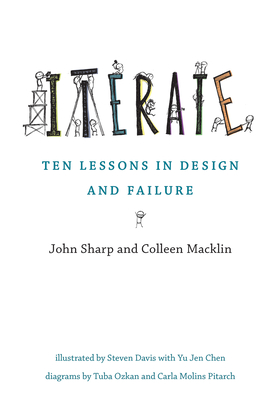Expedite your nonfiction book discovery process with Readara interviews, summaries and recommendations, Broaden your knowledge and gain insights from leading experts and scholars
In-depth, hour-long interviews with notable nonfiction authors, Gain new perspectives and ideas from the writer’s expertise and research, Valuable resource for readers and researchers
Optimize your book discovery process, Four-to eight-page summaries prepared by subject matter experts, Quickly review the book’s central messages and range of content
Books are handpicked covering a wide range of important categories and topics, Selected authors are subject experts, field professionals, or distinguished academics
Our editorial team includes books offering insights, unique views and researched-narratives in categories, Trade shows and book fairs, Book signings and in person author talks,Webinars and online events
Connect with editors and designers,Discover PR & marketing services providers, Source printers and related service providers

Iterate: Ten Lessons in Design and Failure
Design > General
- MIT Press
- Hardcover
- 9780262039635
- 9.1 X 6.2 X 1.2 inches
- 1.35 pounds
- Design > General
- (Single Author) Asian American
- English
Readara.com
Book Description
Failure is an inevitable part of any creative practice. As game designers, John Sharp and Colleen Macklin have grappled with crises of creativity, false starts, and bad outcomes. Their tool for coping with the many varieties of failure: iteration, the cyclical process of conceptualizing, prototyping, testing, and evaluating. Sharp and Macklin have found that failure--often hidden, covered up, a source of embarrassment--is the secret ingredient of iterative creative process. In Iterate, they explain how to fail better.
After laying out the four components of creative practice--intention, outcome, process, and evaluation--Sharp and Macklin describe iterative methods from a wide variety of fields. They show, for example, how Radiolab cohosts Jad Abumrad and Robert Krulwich experiment with radio as a storytelling medium; how professional skateboarder Amelia Br�dka develops skateboarding tricks through trial and error; and how artistic polymath Miranda July explores human frailty through a variety of media and techniques. Whimsical illustrations tell parallel stories of iteration, as hard-working cartoon figures bake cupcakes, experiment with levitating office chairs, and think outside the box in toothbrush design (let's add propellers!). All, in their various ways, use iteration to transform failure into creative outcomes. With Iterate, Sharp and Macklin offer useful lessons for anyone interested in the creative process.
Case Studies:
Allison Tauziet, winemaker; Matthew Maloney, animator; Jad Abumrad and Robert Krulwich, Radiolab cohosts; Wylie Dufresne, chef; Nathalie Pozzi, architect, and Eric Zimmerman, game designer; Andy Milne, jazz musician; Amelia Br�dka, skateboarder; Baratunde Thurston, comedian; Cas Holman, toy designer; Miranda July, writer and filmmaker
Author Bio
John Sharp was appointed Chancellor of The Texas A&M University System by the Board of Regents on Sept. 6, 2011.
Chancellor Sharp leads one of the largest systems in the country with an annual budget of $9.6 billion and an enrollment of more than 153,000 at the A&M System’s 11 universities. Additionally, under the System umbrella, there are eight state agencies.
Chancellor Sharp brings with him more than three decades of public service. He earned a bachelor’s degree in political science from Texas A&M University in 1972, where he was a member of the Corps staff of the Corps of Cadets, a member of the 1972 rugby team and was elected student body president. Upon graduation, Sharp was commissioned as a second lieutenant in the United States Army Reserve.
In 1976, Sharp received a master’s degree in public administration from Southwest Texas State University while working full-time with the Legislative Budget Board in Austin. In 1978, he opened a one-man real estate firm in Victoria and became a successful small business owner. That same year he was elected to the Texas House of Representatives.
In 1982, he won a seat in the Texas Senate, and four years later, he was elected to the Texas Railroad Commission. He also was elected state comptroller in 1990 and re-elected in 1994.
Source: The Texas A&M University System
Community reviews
No Community reviews




